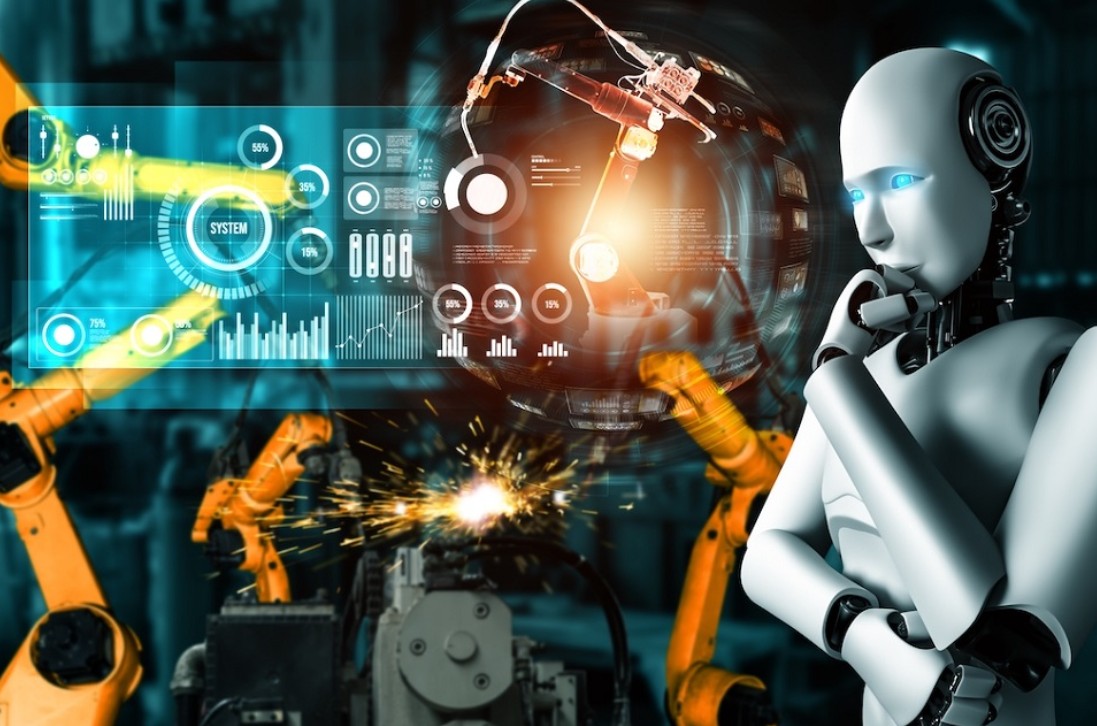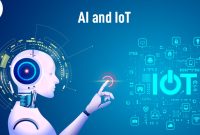Artificial intelligence (AI) is no longer a futuristic concept; it is a transformative force reshaping industries across the globe. From healthcare and finance to manufacturing and entertainment, AI has become an integral part of how businesses operate, innovate, and thrive in a competitive landscape. With its ability to process vast amounts of data, learn from patterns, and make decisions, AI is driving efficiency, improving outcomes, and opening doors to unprecedented possibilities. This article explores how AI is revolutionizing various industries and its implications for the future.
1. AI in Healthcare: Revolutionizing Patient Care
AI is making significant strides in healthcare by improving diagnostics, treatment, and patient management. Machine learning algorithms can analyze medical images, such as X-rays and MRIs, to detect diseases like cancer with remarkable accuracy. AI-powered tools also assist in identifying genetic markers for rare conditions, enabling early intervention.
In addition, AI is transforming personalized medicine by analyzing patient data to recommend tailored treatment plans. Chatbots and virtual health assistants provide 24/7 support, answering patient queries and even scheduling appointments. Predictive analytics in AI helps hospitals manage resources efficiently, reducing wait times and improving patient care.
2. AI in Finance: Enhancing Accuracy and Security
The financial sector has embraced AI to enhance decision-making, detect fraud, and improve customer experiences. Algorithms analyze vast amounts of financial data to provide insights for investments, risk management, and portfolio optimization. AI-driven robo-advisors offer personalized financial advice, making wealth management accessible to a broader audience.
AI also plays a crucial role in fraud detection by monitoring transactions in real time and identifying suspicious activities. Banks use AI-powered chatbots to handle customer inquiries, process loan applications, and provide support, reducing operational costs while improving service efficiency.
3. AI in Manufacturing: Driving Automation and Precision
Manufacturing has undergone a paradigm shift with the integration of AI and automation. AI-powered robots perform tasks with precision and efficiency, reducing errors and improving productivity. Predictive maintenance systems use AI to monitor machinery, preventing costly breakdowns by identifying potential issues before they occur.
AI is also enabling the adoption of smart factories, where interconnected systems optimize production processes and minimize waste. By analyzing supply chain data, AI helps manufacturers predict demand, manage inventory, and streamline logistics, ensuring timely delivery of products.
4. AI in Retail: Personalizing the Shopping Experience
In the retail industry, AI is enhancing customer experiences through personalized recommendations, dynamic pricing, and improved inventory management. E-commerce platforms leverage AI to analyze customer preferences and shopping behaviors, delivering tailored product suggestions that increase sales and customer satisfaction.
AI-powered chatbots assist shoppers in real time, answering queries and providing recommendations, while visual search tools enable customers to find products using images. Retailers also use AI to optimize pricing strategies based on market trends and customer demand, ensuring competitive yet profitable pricing.
5. AI in Transportation: Revolutionizing Mobility
The transportation industry is undergoing a major transformation, thanks to AI. Autonomous vehicles, powered by advanced machine learning algorithms and sensors, are poised to redefine mobility by reducing traffic accidents and improving fuel efficiency. AI is also being used to optimize traffic flow in cities, minimizing congestion and emissions.
In logistics, AI enhances route planning and delivery efficiency. Companies like Amazon and FedEx use AI to predict delivery times, track shipments, and manage inventory. Drones and robots are also being deployed for last-mile deliveries, further streamlining the supply chain.
6. AI in Education: Transforming Learning Experiences
AI is revolutionizing education by enabling personalized learning experiences and improving accessibility. Adaptive learning platforms use AI to tailor content to individual students’ needs, helping them learn at their own pace. AI-powered tools also provide instant feedback, allowing students to track their progress and identify areas for improvement.
Virtual tutors and chatbots assist students by answering questions and providing study resources, while AI-driven language translation tools make education more accessible to non-native speakers. In addition, AI is helping educators streamline administrative tasks, such as grading and attendance tracking, freeing up time for teaching.
7. AI in Entertainment: Enhancing Creativity and Engagement
The entertainment industry is leveraging AI to create immersive and personalized experiences. Streaming platforms like Netflix and Spotify use AI algorithms to analyze user preferences and recommend content tailored to individual tastes. AI is also being used to generate realistic visuals, special effects, and even scripts for movies and video games.
In the gaming industry, AI enhances gameplay by creating intelligent opponents and adaptive challenges. Virtual reality (VR) and augmented reality (AR) experiences are also being powered by AI, enabling interactive and engaging content that blurs the line between reality and fiction.
8. AI in Agriculture: Boosting Efficiency and Sustainability
AI is transforming agriculture by improving productivity and promoting sustainable practices. AI-powered drones and sensors monitor crop health, soil conditions, and weather patterns, providing farmers with actionable insights to optimize their operations.
Precision agriculture, driven by AI, enables targeted application of water, fertilizers, and pesticides, reducing waste and environmental impact. AI also assists in predicting crop yields and detecting diseases, helping farmers make data-driven decisions to maximize efficiency and profitability.
9. AI in Customer Service: Redefining Support
AI is reshaping customer service by providing faster, more efficient solutions to customer needs. AI-powered chatbots and virtual assistants handle routine inquiries, process orders, and resolve issues, freeing up human agents to focus on complex tasks.
Natural language processing (NLP) allows AI systems to understand and respond to customer queries more effectively, while sentiment analysis helps businesses gauge customer satisfaction and address concerns proactively. These innovations enhance customer experiences while reducing operational costs.
10. The Future of AI: Opportunities and Challenges
As AI continues to evolve, its potential applications are virtually limitless. From combating climate change to advancing medical research, AI holds the promise of solving some of humanity’s greatest challenges. However, its rapid growth also raises important ethical and societal questions.
Issues such as data privacy, algorithmic bias, and job displacement need to be addressed to ensure that AI benefits society as a whole. Collaboration between governments, businesses, and researchers is essential to develop policies and frameworks that promote responsible AI development and deployment.
Conclusion
Artificial intelligence is transforming industries and shaping the future in ways we could only imagine a few decades ago. Its ability to analyze data, automate processes, and deliver personalized experiences is revolutionizing how businesses operate and interact with consumers. While challenges remain, the potential of AI to improve lives and solve global problems is undeniable. By embracing AI responsibly and ethically, we can unlock a future of innovation, efficiency, and progress across every sector of society.




